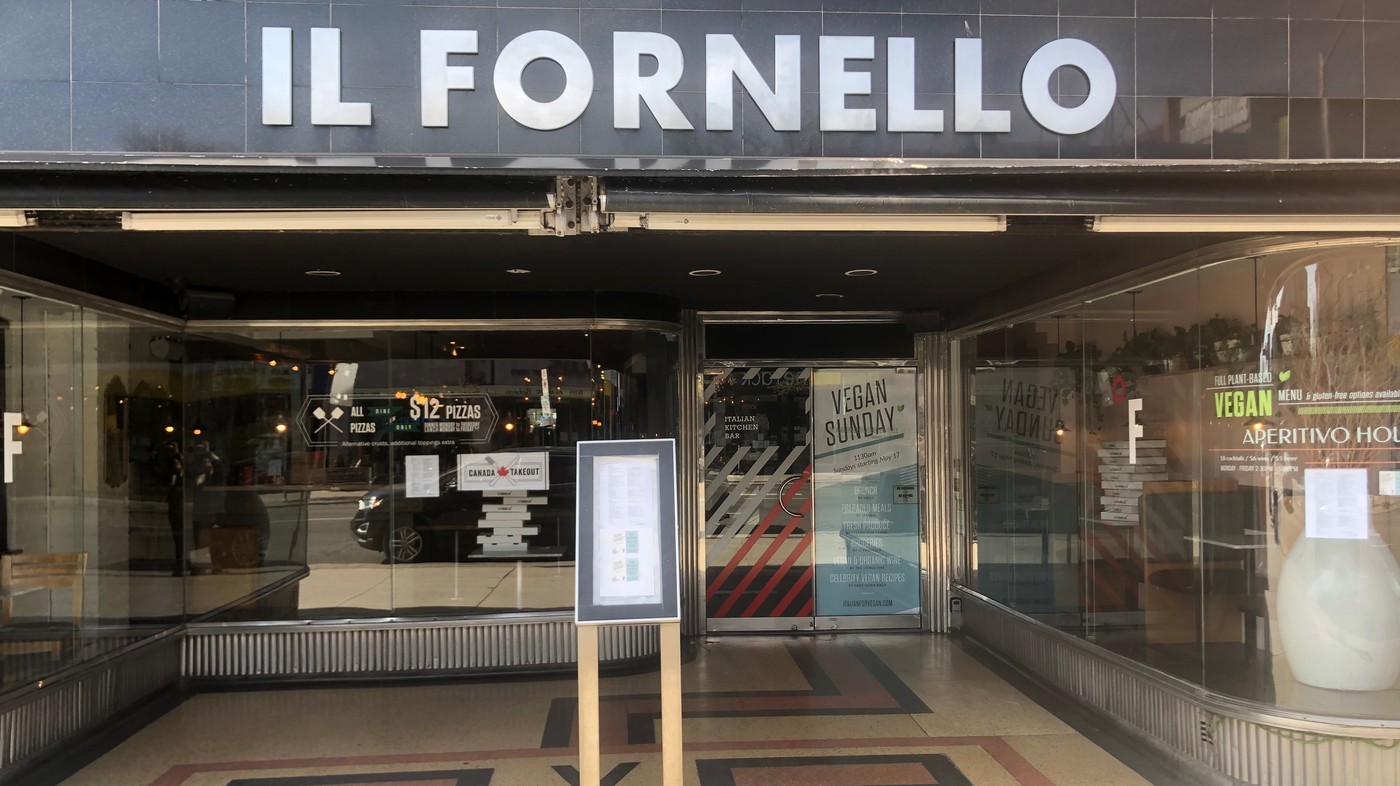With dining in a no-go, food delivery apps are an easy way to reach a huge customer base. But a number of restaurants say it’s a deal with the devil.
By Anne Gaviola May 6 2020

IL FORNELLO RESTAURANTS ARE HOLDING A ONE-DAY UBER EATS BOYCOTT OVER "EXORBITANT" FEES THAT CUT INTO ALREADY THIN RESTAURANT MARGINS. PHOTO SUPPLIED.
A handful of Toronto restaurants are boycotting Uber Eats Wednesday saying it charges more than any other delivery app, while marketing itself as a company that is helping the struggling food industry.
According to Ian Sorbie, the president of Il Fornello Restaurants, which operates six Toronto area locations, Uber Eats’ cut from an order over its platform is 30 percent, while DoorDash’s commission is 25 percent, and Canadian startup SkipTheDishes is around 20.
“It’s a huge amount of money that Uber Eats takes while they talk about helping out restaurants. It’s total hypocrisy and false advertising,” said Sorbie. He’s referring to Uber Eats’ move to waive delivery fees to restaurants, which doesn’t apply to his business because it’s a small chain.
In an email to VICE, an Uber spokesperson said the $0 Delivery Fees apply to orders over $20 from independent restaurants. It has also waived activation fees and offers restaurants a reduced 15 percent fee if they choose to use their own delivery people.
Sorbie says when customers are offered free delivery, that saves the consumer money, but doesn’t always mean less cost to the restaurant.
The one-day boycott coincides with a national campaign, created by Takeout Canada, an initiative supported by hundreds of restaurants, encouraging people to order food from local businesses every Wednesday during the coronavirus pandemic.
Rival takeout delivery rates vary between 10 and 25 percent but Uber Eats is the most expensive, with a significant share of the market. According to research by Dalhousie University, it has captured between 30 and 40 percent of the market in Ontario. Rival Foodora, which announced plans to pull out of Canada last week, two months after its workers were granted the right to unionize in Ontario, charged about 20 percent commission.
Sorbie says there’s intense pressure to use these apps because the competition is. Small, independently owned restaurants typically have less of a cushion to get through this massive upheaval to the industry, which has already claimed more than 800,000 food service jobs.
Other restaurants in Toronto have dropped Uber Eats completely. Popular spots such as Craig’s Cookies and Sugo have quit the platform in recent weeks.
A recent survey by Restaurants Canada, a national industry group, shows that 75 percent of restaurants are “very concerned” about their current level of debt. Half of independent restaurants say they will have to close if conditions don’t improve in the next three months.
According to research released Tuesday by Dalhousie University, demand for food delivery services has surged during the coronavirus pandemic. “In 2019 we estimate the food delivery app market was worth $1.5 billion and as a result of the pandemic, it could exceed $2.5 billion by the end of this year,” said Sylvain Charleboix, director of Dalhousie’s agrifood analytics lab.
Delivery apps now offer contactless service and have dropped some fees. UberEats advertised free local delivery, which saves you money but doesn’t reduce what it charges restaurants. SkipTheDishes offers a 10.5 percent commission to restaurants who do their own deliveries and DoorDash is waiving April commission fees for new, independent restaurants.
According to an Abacus Data survey, taken before the pandemic hit, millennials are more likely than older Canadians to use food delivery apps. About sixty percent are frequent users, meaning they use the service at least once a month.
Sorbie says the best way to support your favourite restaurant is to call them directly and place an order for pickup—and cut out the middle man.
Michelle Jobin is a spokesperson for Canada Takeout, a restaurant advocacy group, and she suggests allocating the money you would spend at your favourite places. “Think about the places that bring you joy in your regular life and spend your money there. The big companies will come out of this OK because they have the means but it’s the small places that don’t,” she said.
If you can swing it, Jobin suggests buying gift cards to your favourite place and using those for birthday presents or special occasions (hot tip: Mother’s Day is Sunday). Many places offer different denominations if you don’t have a ton to spend.
According to Jobin, even people who have no extra money right now can still lend support. “If you have zero budget and things are really tough for you, use the power of whatever influence you have to talk about your love for that place,” she said. “On social media, to family and friends, create some hype, and hopefully people who have money will spend money there.”
Follow Anne Gaviola on Twitter.
No comments:
Post a Comment